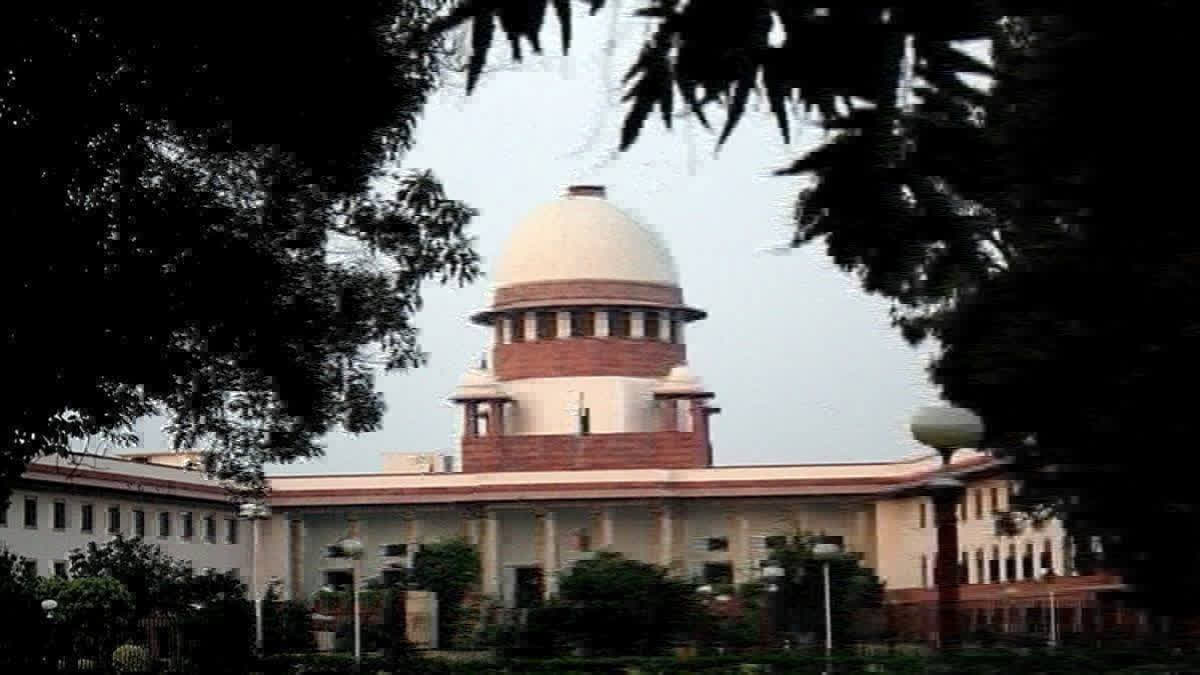New Delhi: The Supreme Court on Wednesday said calling a woman an "illegitimate wife" or "faithful mistress" will amount to a violation of the fundamental rights of that woman under Article 21 of the Constitution, and stressed that describing a woman by using these words is against the ethos and ideals of Indian Constitution. The top court said under Section 21 of the Constitution, every person has a fundamental right to lead a dignified life.
A bench comprising Justices Abhay S Oka, Ahsanuddin Amanullah, and Augustine George Masih said calling the wife of a marriage declared as void as an illegitimate wife is very inappropriate while taking an exception to the use of the words by the Bombay High Court in its 2004 judgement.
The apex court, dealing with a reference, observed that the Bombay High Court's full judge bench in Bhausaheb alias Sandhu s/o Raghuji Magar Vs Leelabai w/o Bhausaheb Magar (2004), has coined the term "illegitimate wife".
“No one can use such adjectives while referring to a woman who is a party to a void marriage. Unfortunately, we find that such objectionable language is used in a judgment of the full bench of a high court. The use of such words is misogynistic. The law laid by the full bench of the Bombay High Court is obviously not correct," said the top court.
Justice Oka, who authored the judgment on behalf of the bench, said it is pertinent to note that the high court has not used similar adjectives in the case of husbands of void marriages, and stressed that under Section 21 of the Constitution, every person has a fundamental right to lead a dignified life.
"Calling a woman an 'illegitimate wife' or 'faithful mistress' will amount to a violation of the fundamental rights of that woman under Article 21 of the Constitution of India. Describing a woman by using these words is against the ethos and ideals of our Constitution," said Justice Oka.
Citing a paragraph in the high court's judgment, the bench said the full bench has coined the term “illegitimate wife”, and calling the wife of a marriage declared as void as an illegitimate wife is very inappropriate. “It affects the dignity of the concerned woman. Unfortunately, the Bombay High Court went to the extent of using the words ‘illegitimate wife’. Shockingly, in paragraph 24, the high court described such a wife as a ‘faithful mistress’”, said the bench.
The bench said no one can use such adjectives while referring to a woman who is a party to a void marriage. The three-judge bench, in its judgment, held that a spouse whose marriage has been declared void under Section 11 of the Hindu Marriage Act is entitled to seek permanent alimony or maintenance from the other spouse by invoking Section 25 of the Act. "Whether such a relief of permanent alimony can be granted or not always depends on the facts of each case and the conduct of the parties. The grant of relief under Section 25 is always discretionary," said the bench.
The bench said even if a court comes to a prima facie conclusion that the marriage between the parties is void or voidable, pending the final disposal of the proceeding under the 1955 Act, the court is not precluded from granting maintenance pendente lite provided the conditions mentioned in Section 24 are satisfied. "While deciding the prayer for interim relief under Section 24, the Court will always take into consideration the conduct of the party seeking the relief, as the grant of relief under Section 24 is always discretionary," said the bench.
Section 24 confers a power on a matrimonial court to grant interim maintenance in pending proceedings seeking a decree contemplated under the 1955 Act. The power is to be exercised pending the proceedings for a grant of a decree under Sections 9 to 13 of the 1955 Act.
"A grant of a decree under Section 25 of the 1955 Act is discretionary. If the conduct of the spouse who applies for maintenance is such that the said spouse is not entitled to discretionary relief, the Court can always turn down the prayer for the grant of permanent alimony under Section 25 of the 1955 Act. Equitable considerations do apply when the Court considers the prayer for maintenance under Section 25. The reason is that Section 25 lays down that while considering the prayer for granting relief under Section 25, the conduct of the parties must be considered," noted the bench.
The top court delivered its judgment on a reference by a two-judge bench on August 22, 2024, due to conflicting views on the applicability of Sections 24 and 25 of the Hindu Marriage Act, 1955, whether alimony can be granted where marriage has been declared void.



